Wadaiko player
Yosuke Interview
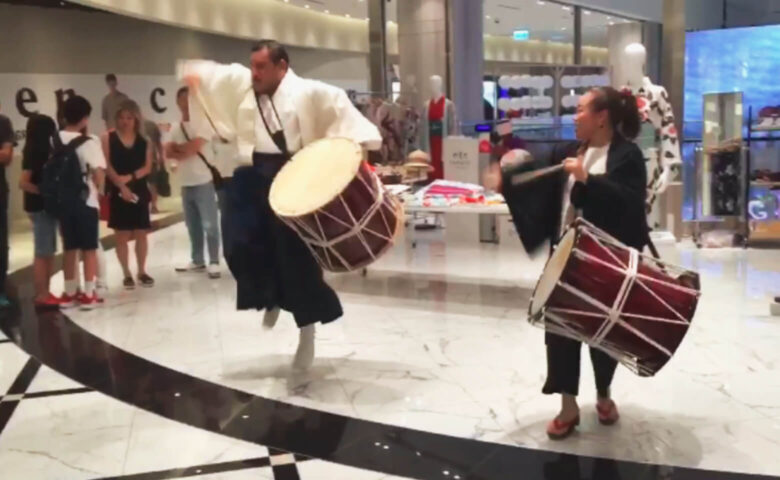
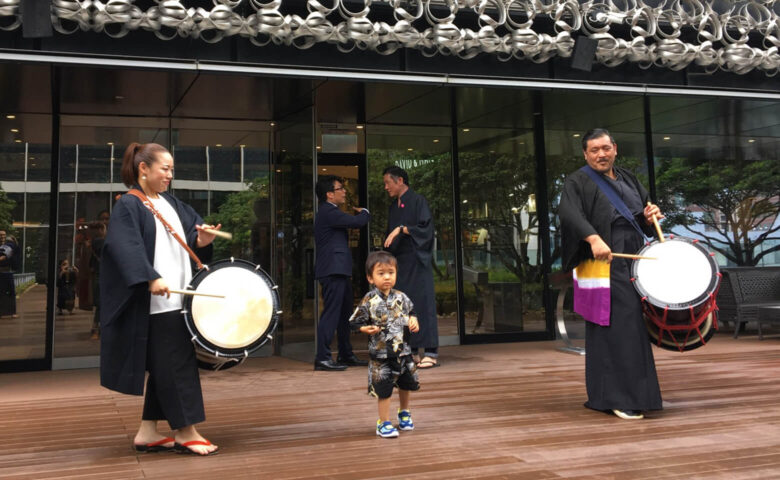
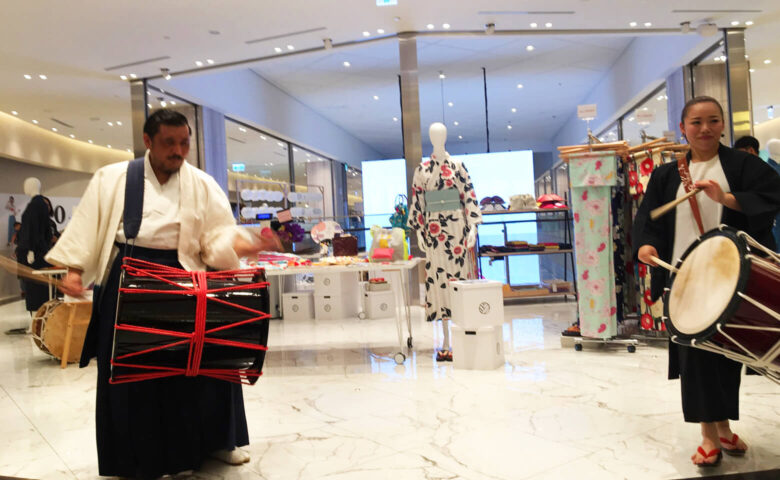
We interviewed Yosuke, a wadaiko player who became an independent wadaiko player after performing as an active member of Kodo, a professional wadaiko (Japanese drum) performing troupe based in Sado City, Niigata, and is now based in Himeji and makes efforts to introduce Japan to the world, together with Himeji Castle, which is designated as a World Heritage Site and a National Treasure and connect people around the world, about the charm of the kimono that is part of Japanese culture just like the wadaiko.
Our relationship with wadaiko player Yosuke started when we provided him with outfits for the event held at Isetan Shinjuku store. When we opened a temporary pop-up store at Breeze NAN SHAN atré in Taiwan last July, we held an event in which his wadaiko performance along with the kimono and yukata made the visitors experience the summer in Japan.
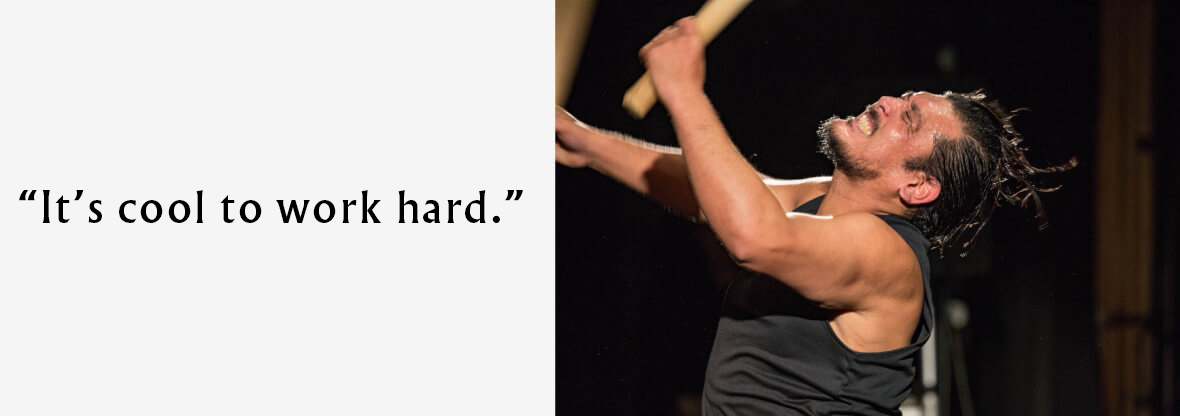
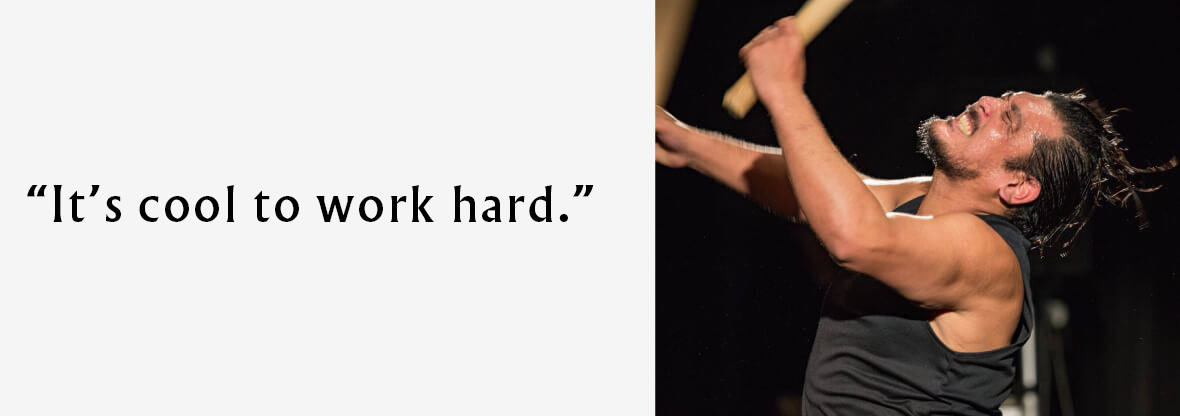
I started playing the wadaiko because my teacher had suggested that I try it back in high school. When I was a kid, my family moved a lot. Kids in the towns I lived in played the taiko drum at local festivals, but I wasn’t allowed to play it because I had not been born there, and I hated it. That kept nagging at the back of my mind. I feel grateful for that experience now because not having been able to play the taiko drum as a kid has made me who I am.
I discovered Kodo sometime after I had started playing the wadaiko. Before I discovered Kodo, I had thought that it was kind of uncool to make efforts or work hard. However, thanks to Kodo, I came to think, “It’s cool to work hard.” Kodo made me want to know how it felt to work hard until I bled and pour my passion into something like them, and I participated in the audition and joined Kodo.
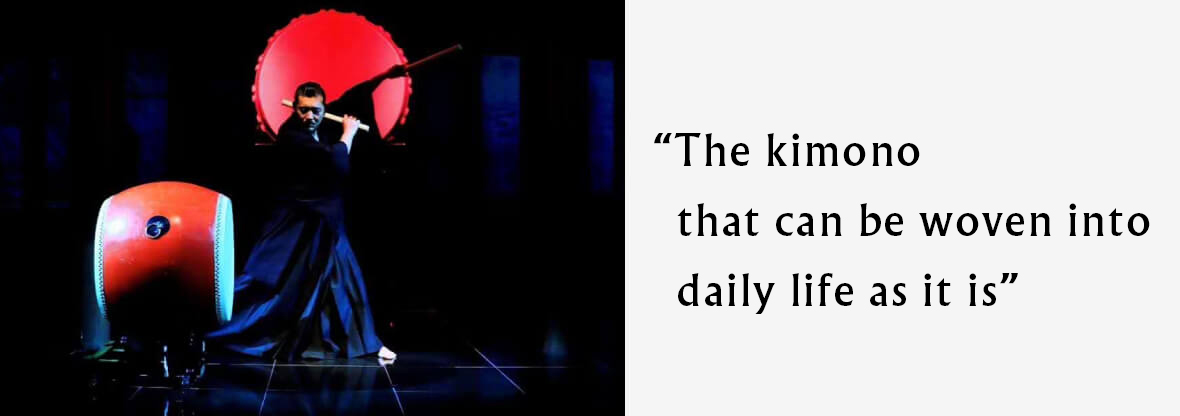
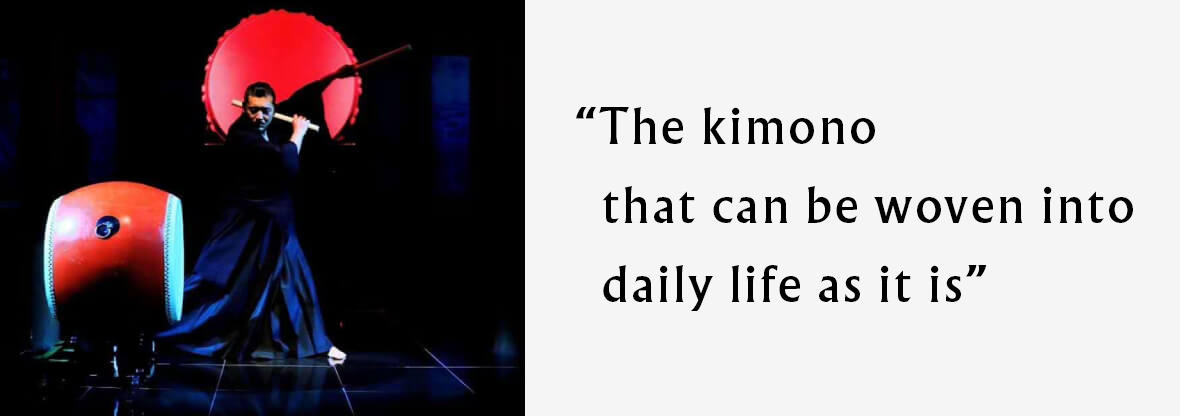
After performing as a member of Kodo, I became an independent wadaiko player 2 years ago. Around that time, I met President Yajima of Yamato. Back then, I was worried about what kind of outfits I should wear at ISETAN BONDANCE held on the roof of Isetan Shinjuku store. I didn’t like the traditional outfits for wadaiko performance so much because it felt like they were overly “Japanese-like.” Then I discovered Yamato. I thought, “This is it!”
That kimono made by Yamato was not a special costume. It was so natural that it could be woven into our daily lives as it was, which made it more attractive. If I walk down a street in that kimono, I don’t look out of place at all. If I pick up a drumstick in that kimono, where I stand becomes a stage. It is such an interesting kimono.
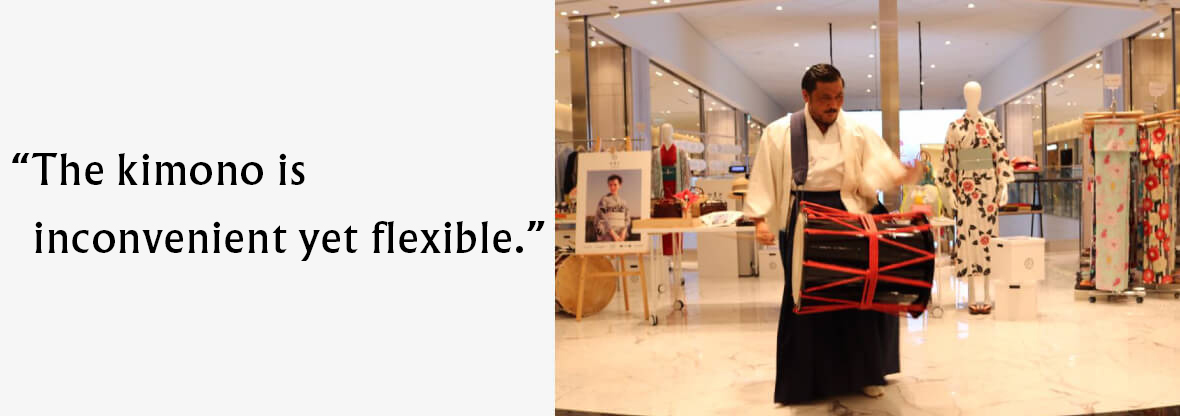
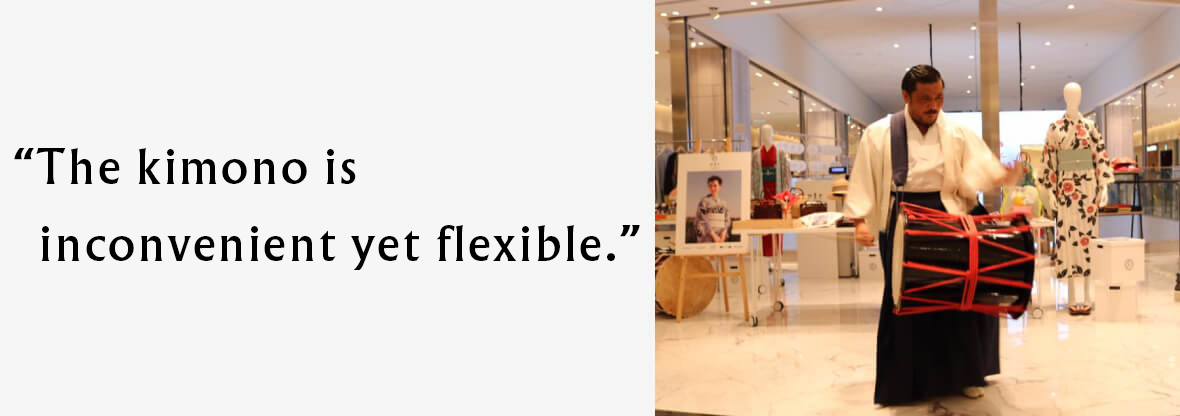
I think the kimono is sophisticated.
I think what makes the kimono attractive is its beautiful silhouette. We could say it is a culture of creating beautiful lines. The kimono is made by sewing straight lines. When you wear it, you make adjustments so that those straight lines fit the curves of your body. You cannot change the shape of Western-style clothes as you like because they are not as flexible as the kimono. I think the kimono is inconvenient yet flexible.
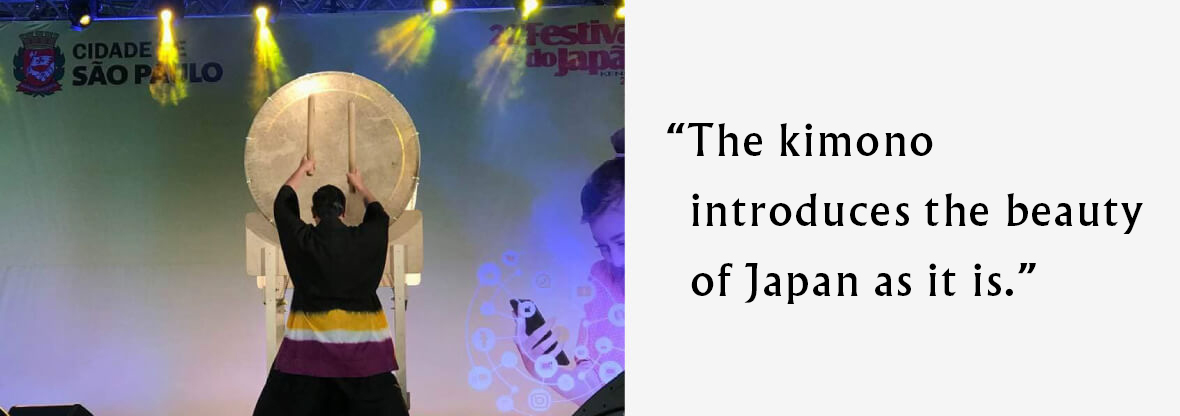
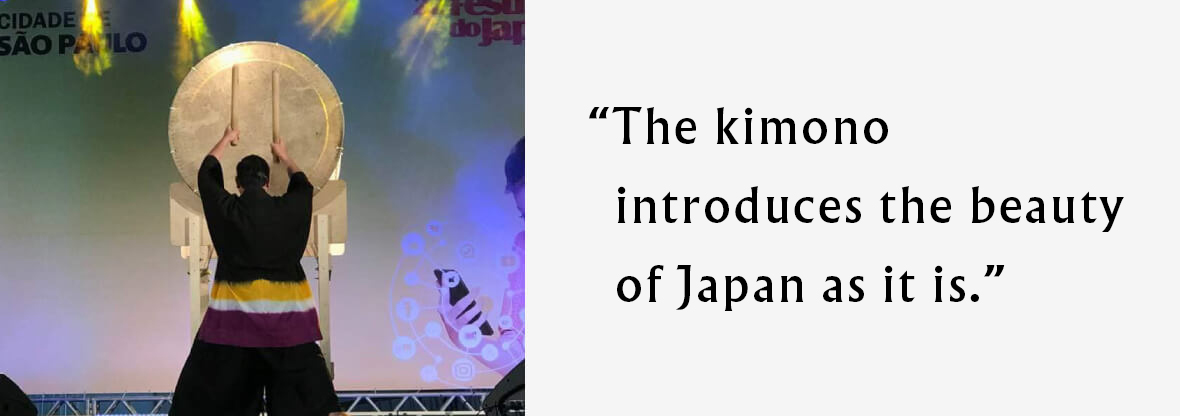
I often visit overseas countries to play the wadaiko. When I stay overseas, I always wear the kimono. People around the world see Japan in me when I wear the kimono or play the wadaiko. It makes me so happy. However, I think it rarely happens because there are surprisingly few performers who wear the kimono overseas except for performers of traditional performing arts such as kabuki.
I believe wearing the kimono in overseas countries is to introduce the beauty of Japan as it is. So, when I visit embassies or go to parties in the kimono in overseas countries, people really like it and, surprisingly, I don’t feel out of place at all wearing the kimono. I would like many more people to wear the kimono.
Lastly, I think of Yamato as a straightforward company.
Though it is a company that sells kimonos, it provides experience and joy through those kimonos, rather than just selling them. I feel that this mindset is reflected in your products.
【Profile】
YOSUKE Wadaiko player, director, and composer
Website:https://yosuke55.com
Birthplace:Hashimoto City, Wakayama
Theme:“Live, Survive”
I specialize in playing the big taiko drum. With “Life is short. Life is precious. Live out my finite life” as the biggest theme, I would like to make the earth echo with the sound of my taiko drum through my solo big taiko performances, guest appearances in concerts, collaboration projects with other artists, taiko classes, and performances at schools utilizing my explosive energy produced by pushing myself beyond my limits, techniques I have developed for years, and mental strength. I would like to make that sound resonate and spread so that it can pave the way toward peace as if it is one of the million pebbles on that way.
【Related videos】
・NHK WORLD-JAPAN
・NHK -Takumi-

